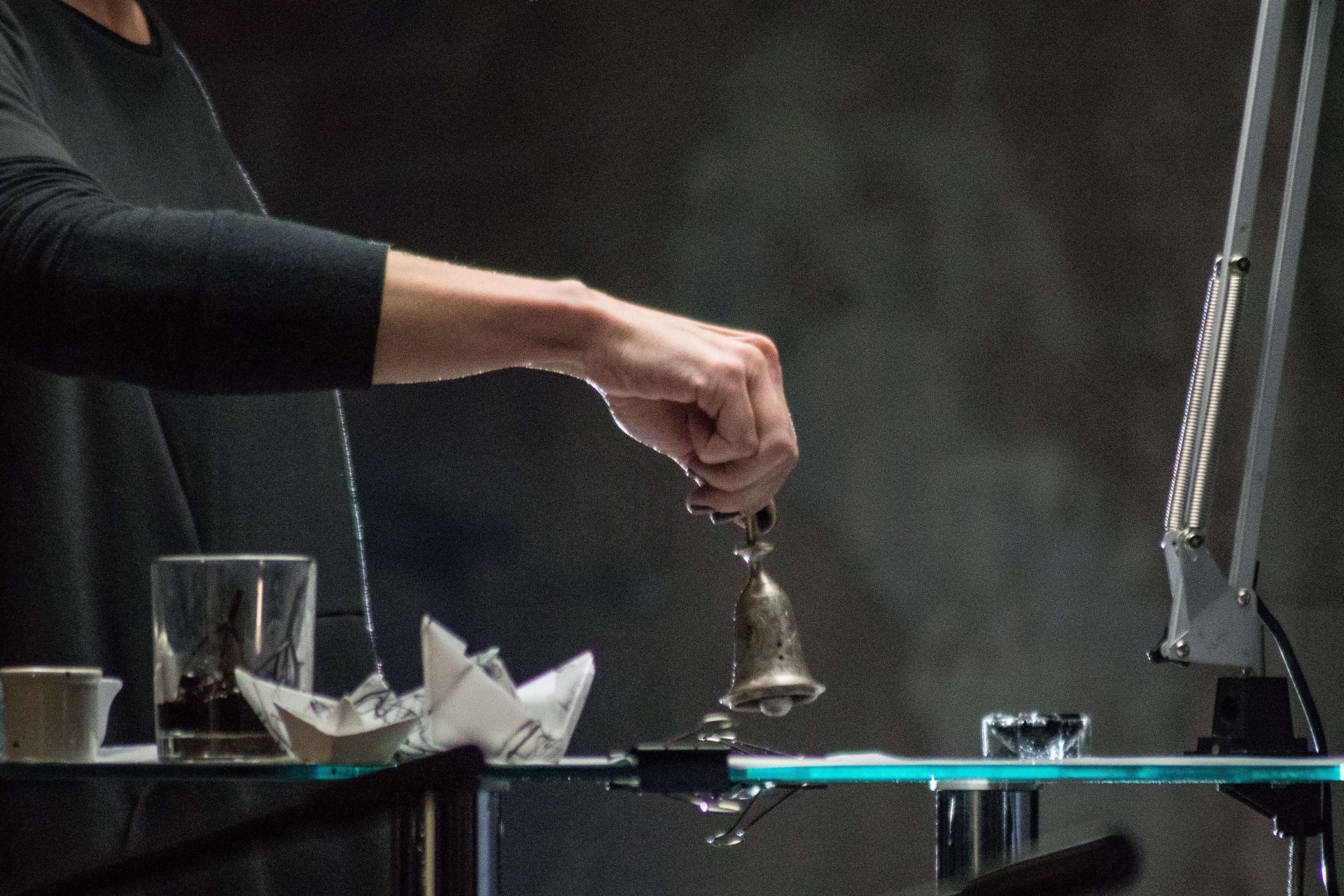rozdILovI
multimedia project
- Olia Mykhailiuk
- idea/visualization
- Serhii Zhadan
- text/voice
- Oleksii Vorsoba / Tomasz Sikora
- music
- Serhii Piliavets
- visualization
“rozdILovI” combines poetry, music, and visualization. Started in the format of a lab, the project has evolved into an independent stage action, but has continuously transformed and improved, with changing texts, images, and melodies. Olia Mykhailiuk (idea/visualization), Serhii Zhadan (text/voice), and Oleksii Vorsoba (music) have been its regular participants. At different stages, the project was joined by famous musicians and video-artists. The performances have taken place at various locations, from Bakhmut and Stanytsia Luhanska to Warsaw and Wroclaw, and in Kyiv, Kharkiv, and Odesa rozdILovI has been performed multiple times.
Now rozdILovI is actively developing in the virtual space — on the website rozdILovI.org and the social network Instagram. All of the texts have been translated into English, German, French, Italian, and Czech, and now the project’s audience is not limited to Ukrainian speakers. A synthesis of words, graphics, and music that emphasizes the particular melodics of each language, tactile sensations, and the newest technologies rebroadcast in the virtual space, it provides an opportunity to communicate freely in a special poetic language for which rhythm, pauses, and intonations are important.
Against the backdrop of the overall speed-up and simplification, rozdILovI.org remains timeless and requires immersion. On the website, the users can watch the video from the performances and see the lyrics of new compositions or create their own e-cards in different languages. rozdILovI is more than a project, it is already a community that has emerged around one performance. A movement.
Alongside the online part, the offline story of the project is developing. Visual works that have emerged over the last six years have found a new embodiment. The author of the visualization, Olia Mykhailiuk, created them sitting by a glass table during live performances which were broadcast by a camera on a screen in real-time. Pieces of tracing paper that absorbed all the manifestations of the project, kind of artifacts left after the shows, have been assembled in an installation and now represent a separate creation. At the previous stage, the process was important — the intensity, dynamics, pauses, changes in the states of the writing. Today, spectators can focus on the composition of works, layers, translucency, uppercase and lowercase letters that change meanings, as well as colors, substances and textures. These paintings tell the story of familiar words and signs in a new way.
Full immersion in the dense, dark space of someone else’s heart, whose every flicker of joy or desperation frightens away the most important memories and inmost dreams. With that, rozdILovI, however paradoxical it may sound, is an extremely laconic, and hence an extremely penetrating thing.
Zhenia Oliynyk
The combination of poetry, music and visual imagery appears to create a new organic body whose moves are being scrutinized by the audience. The visual part of rozdILovI is so laconic and so closely tied up with the lyrics, literally emerging and growing out of it, that at times one can get lost in trying to discriminate between what exactly is heard and what is seen. rozdILovI translates poetry from the textual form into a touch through an iconic resemblance between signs and meanings. Music sometimes complements and supports this dance of voice and signs, coming to the forefront at one moment and almost fading out at the next. All of this together creates a different space and emotional state, which certainly is something more than just the sum of visual performance, music and poetry.
Lia Dostlieva
This is, perhaps, the way art develops in general: it ceases to be very detached. Literature, for instance, is no longer just text written on paper. When it comes to visual art, it can often be absolutely textual, where all this textuality just needs to be revealed. And in this, rozdILovI are pioneers in a sense. That’s why, it seems to me, it’s so difficult to grasp this technology, to explain what rozdILovI is. It is very interesting to look at projects where this transgression of the boundaries between different artistic environments takes place.
Olesya Ostrovska-Liuta
